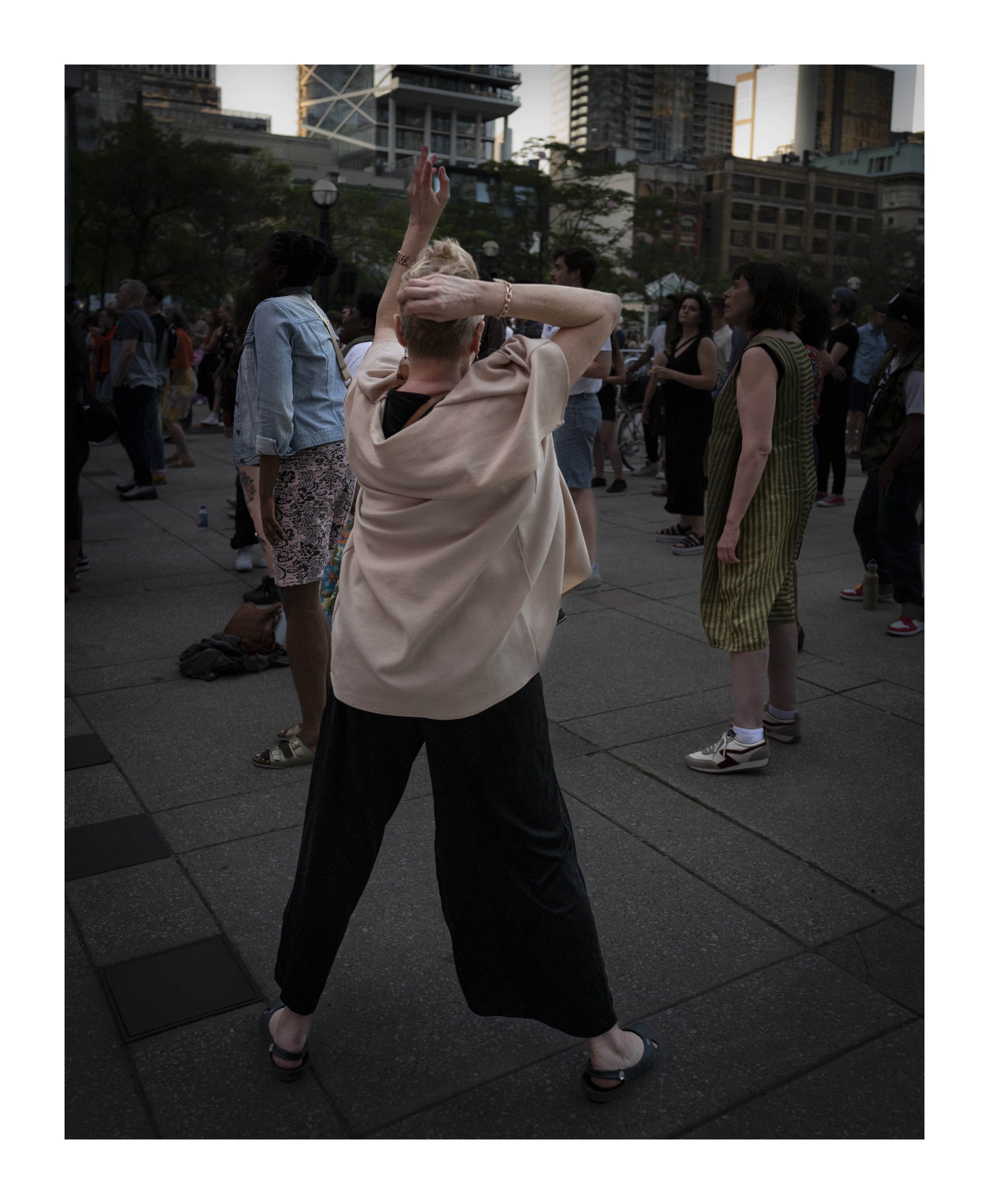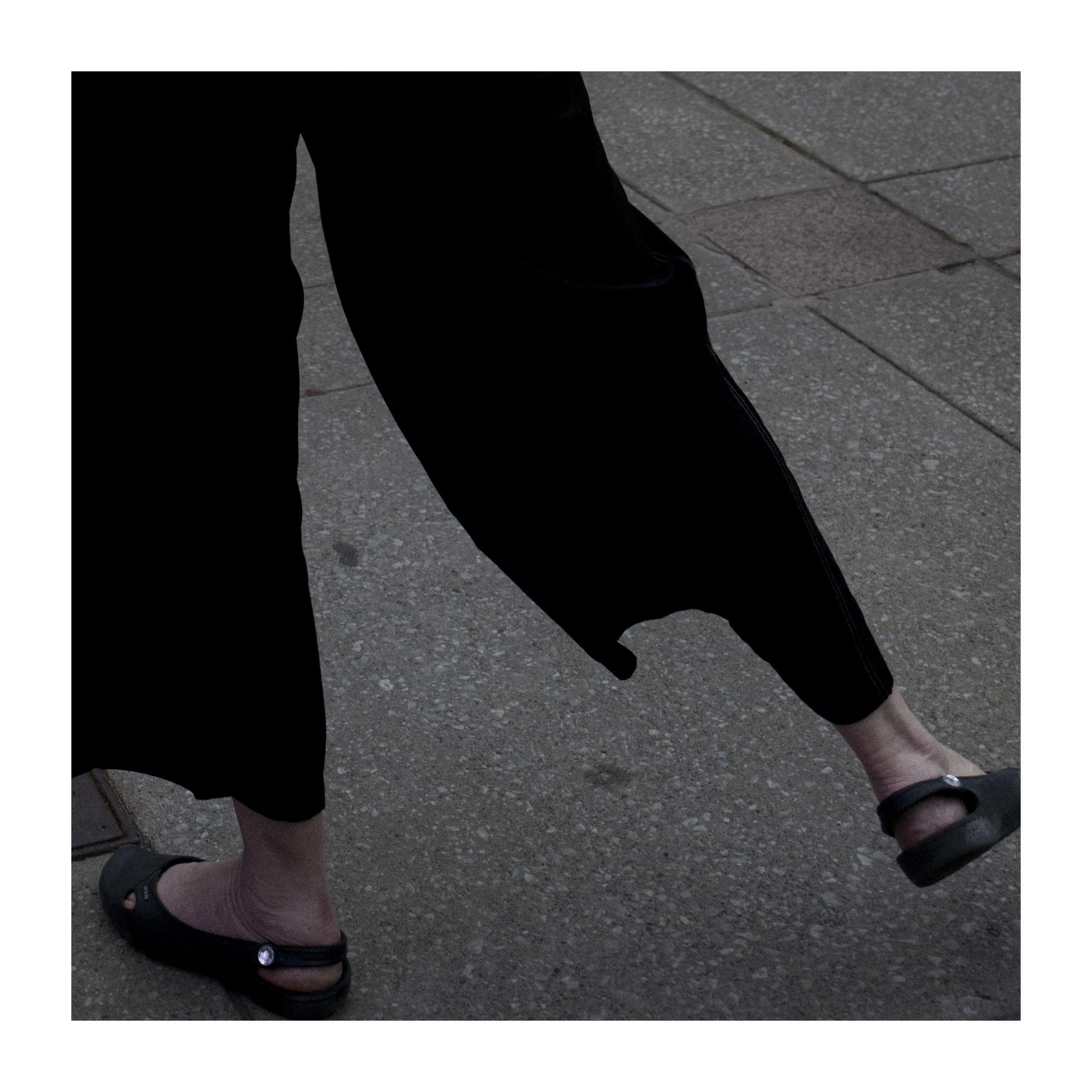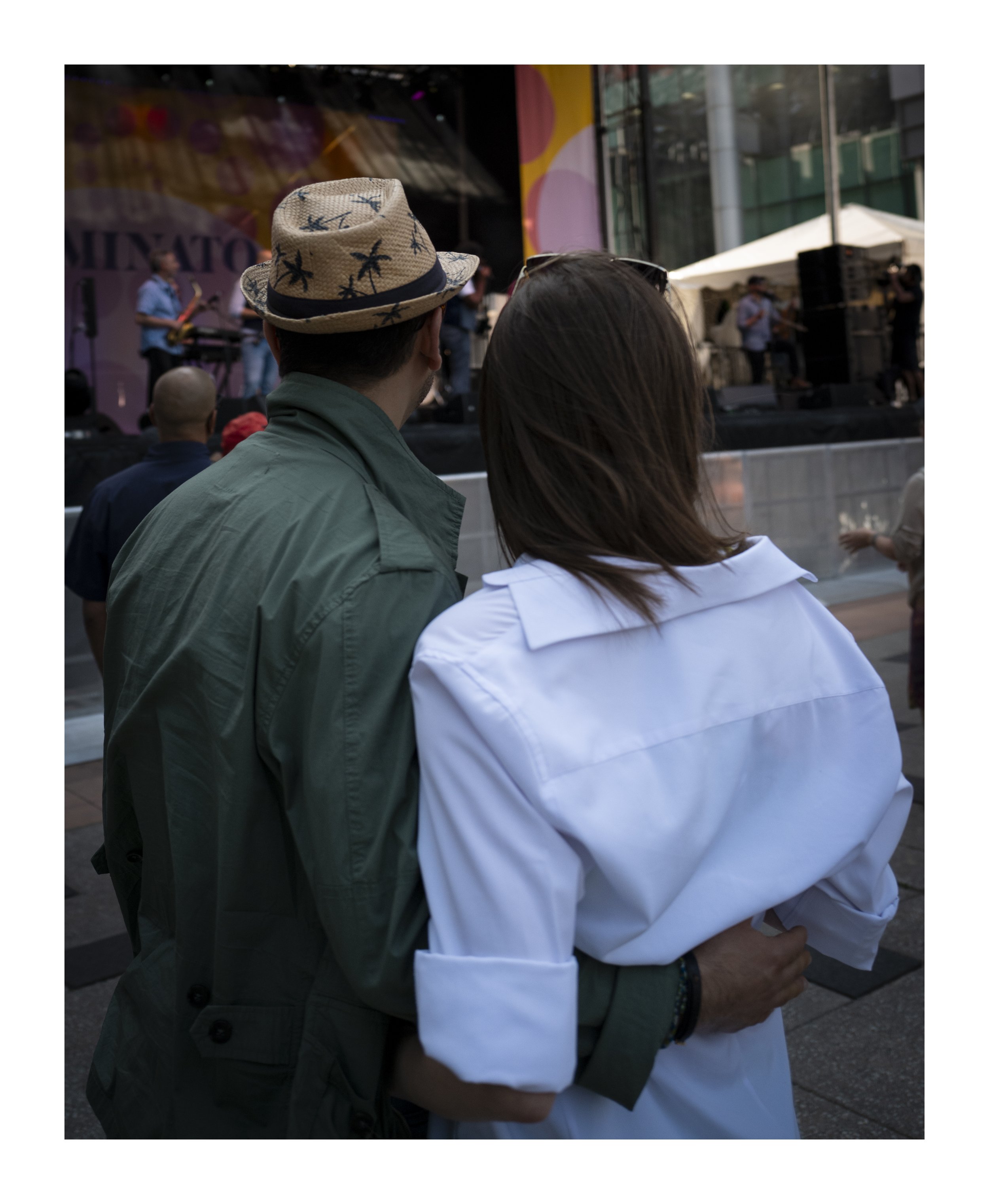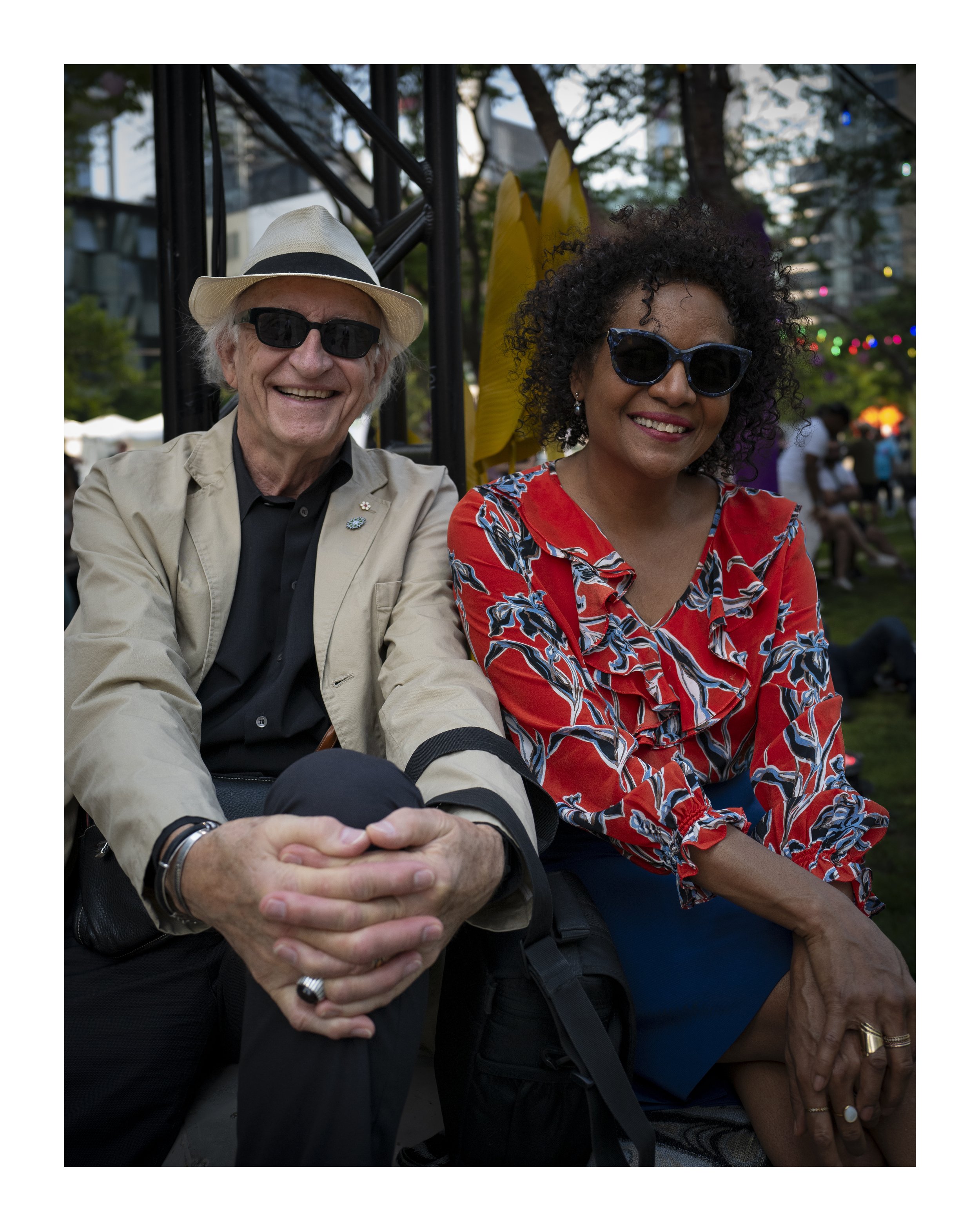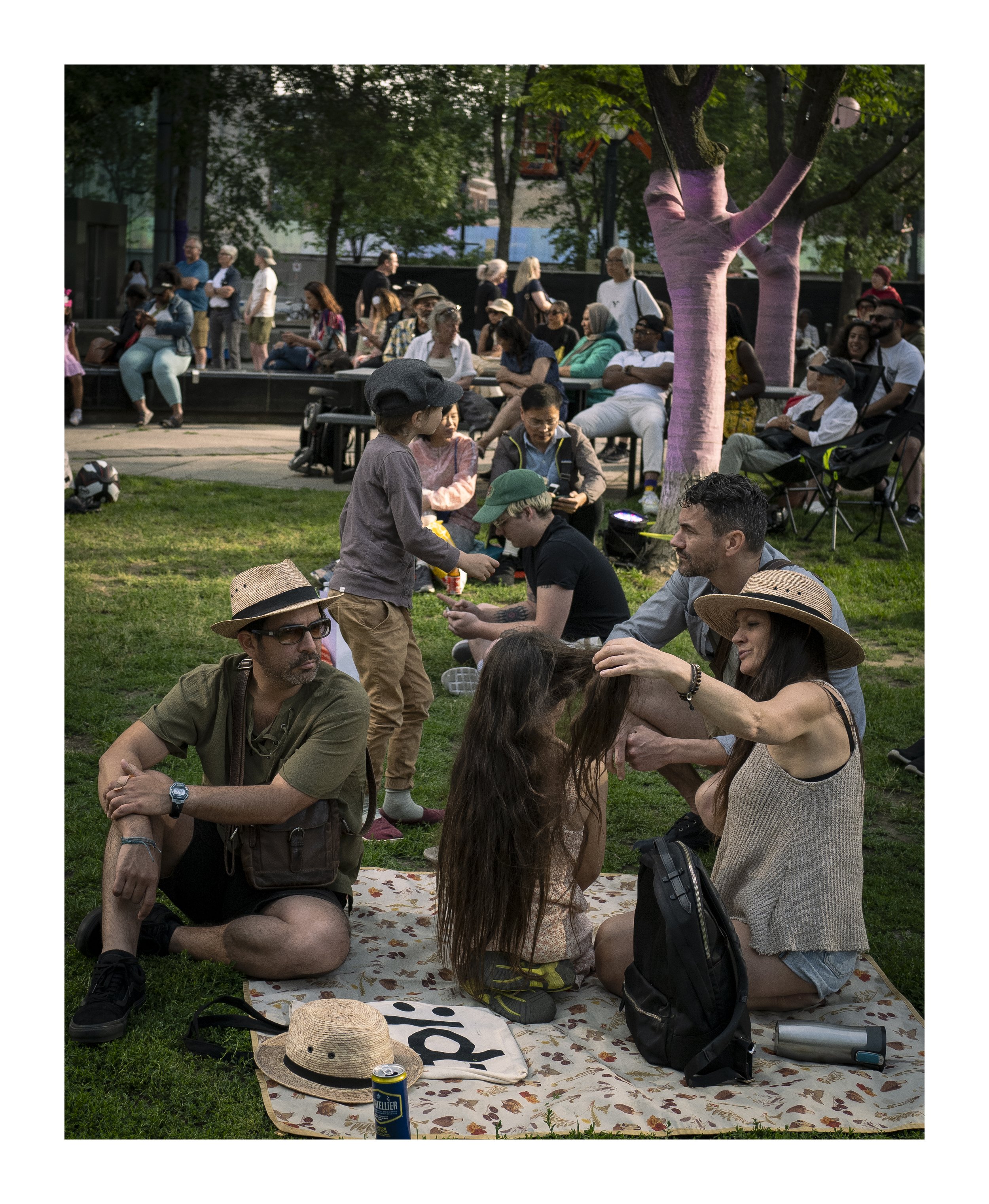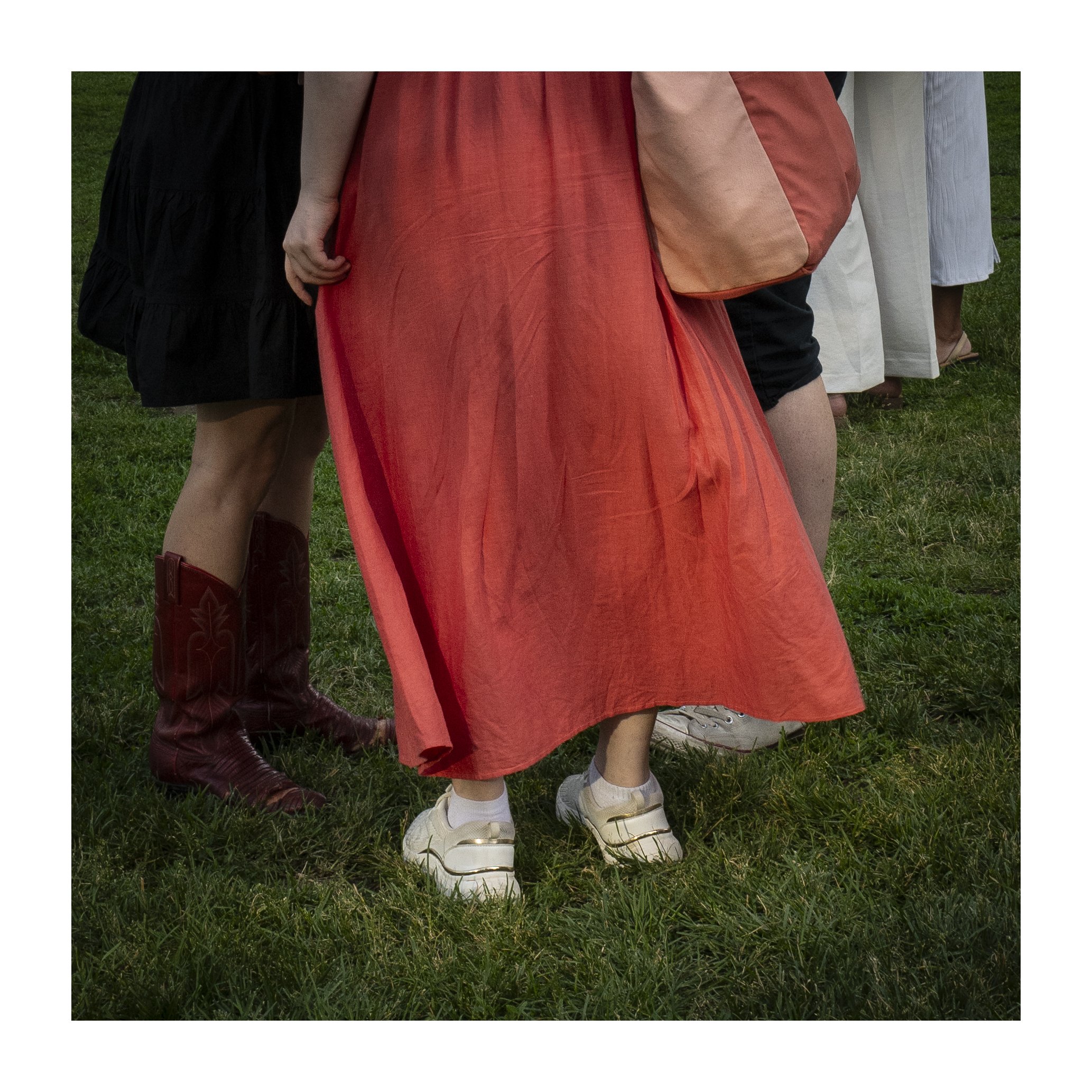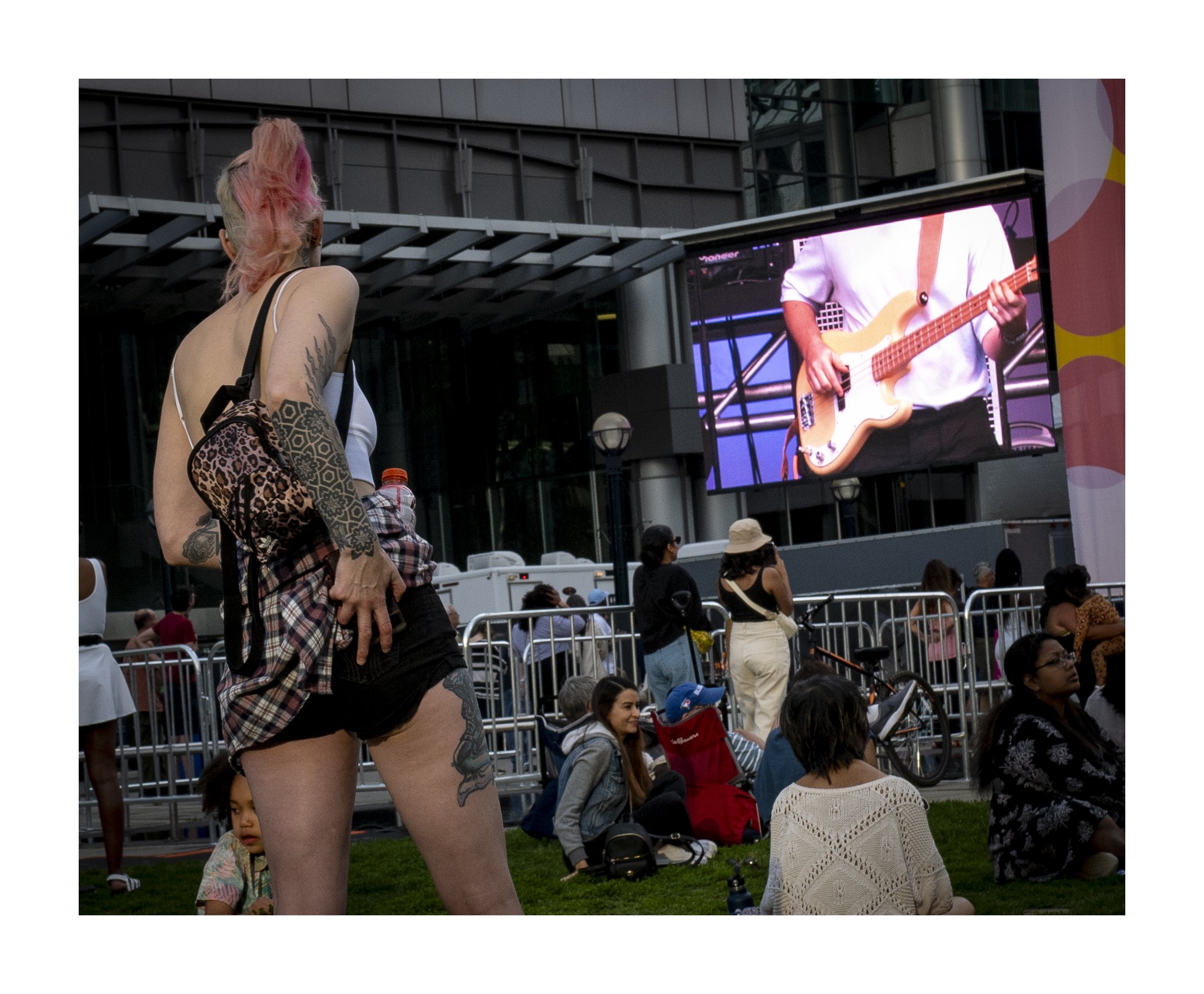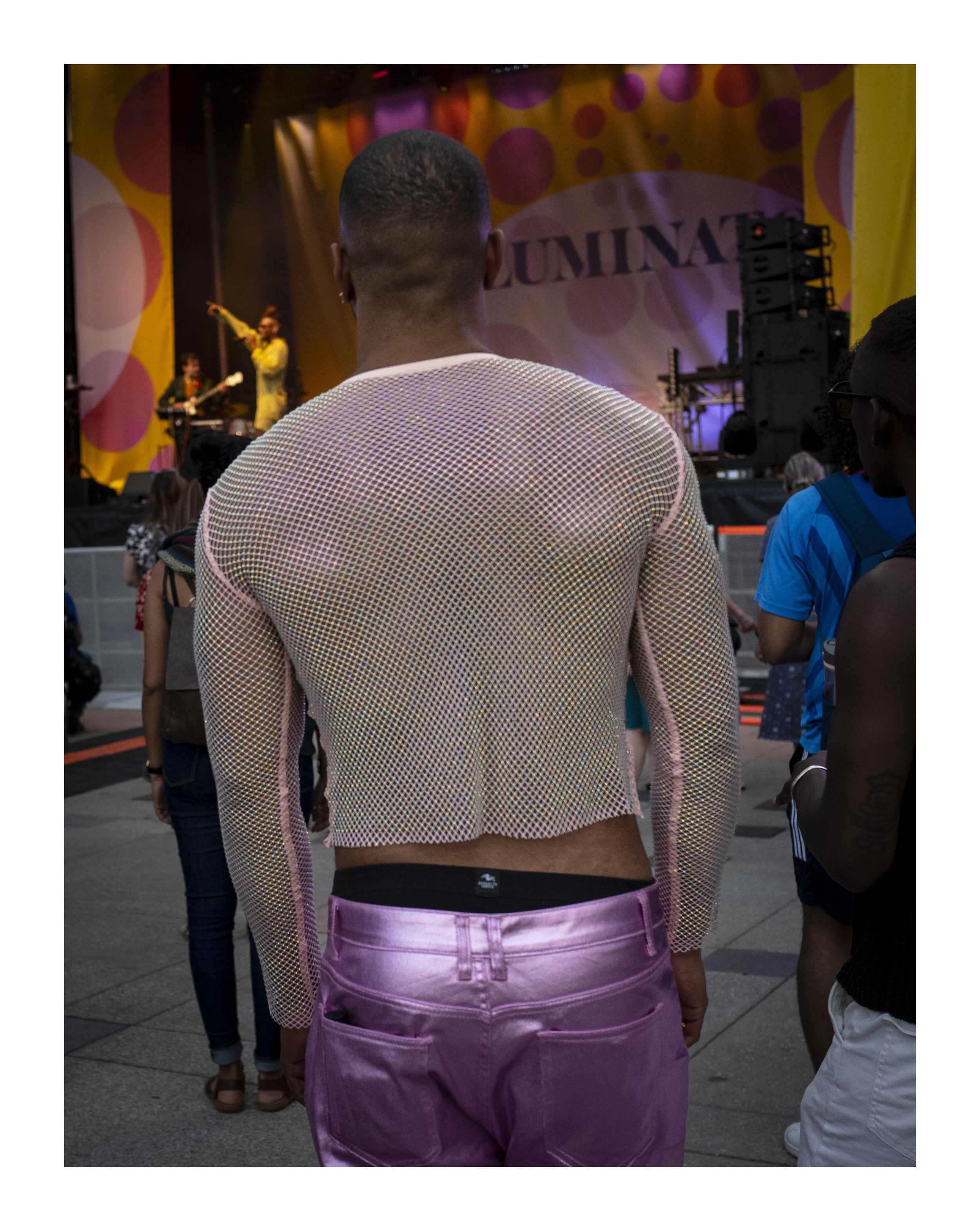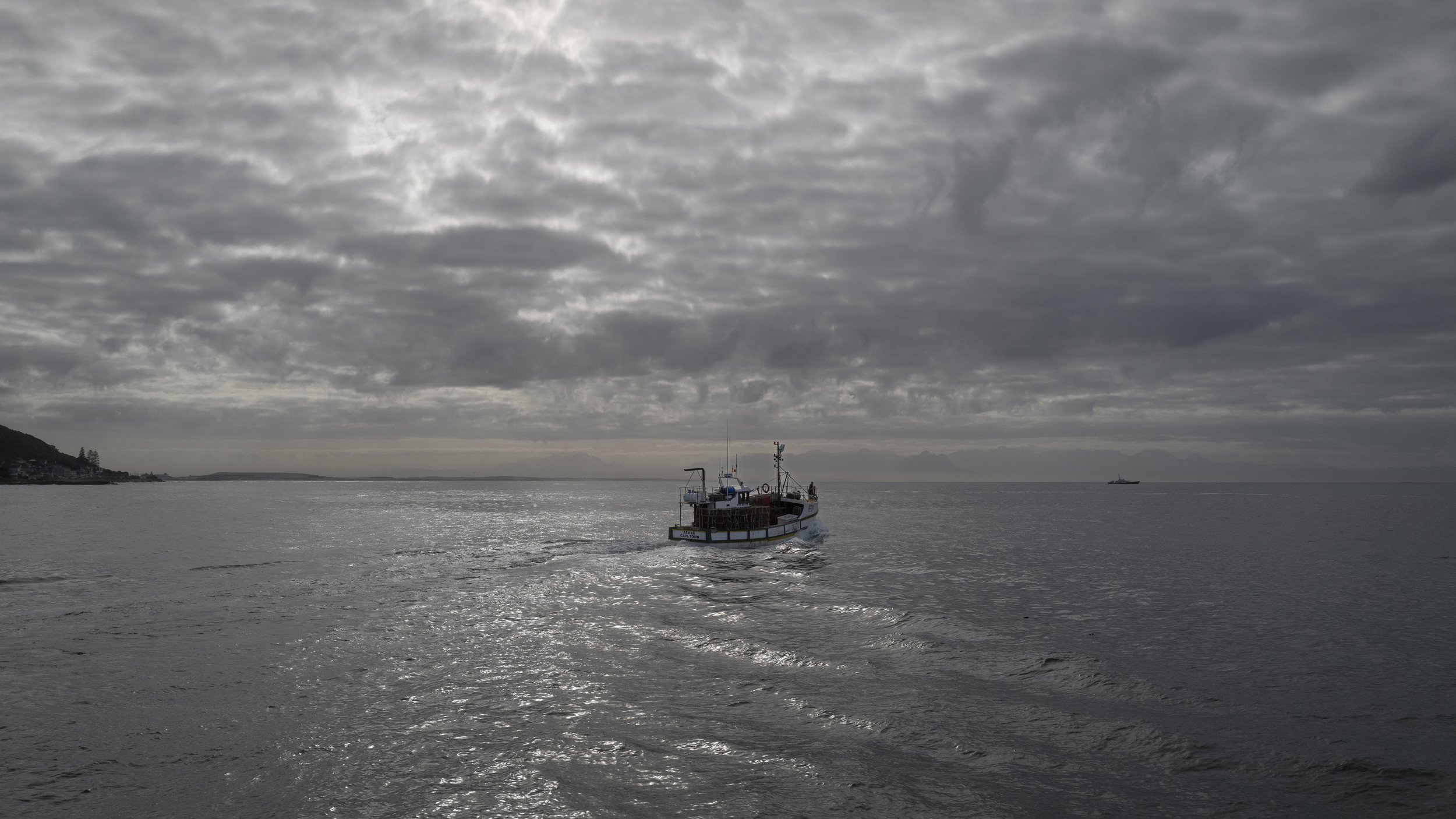Remembering the Sixties
Leonard Cohen. Montreal, July 2023
Photographs and Memories
A friend lends me Paul McCartney’s Photographs 1963 - 64: Eyes of the Storm - currently on show at the National Portrait Gallery in London. Here at home in Marchmount Road in Toronto, heavy in my hand, the photographs take the form of a lavishly produced photo-book, replete with quotes and anecdotes, critical essays and other apparatus, a trove of Sir Paul’s personal and behind-the-scenes images covering the three short months, December 1963 to February 1964, in which The Beatles catapulted to global fame and conquered America.
Me, at St James’ beach, Cape Town
Two facts: I turned 10 in August 1963, and John F. Kennedy, the President of the United States, was assassinated in Dallas on 22 November. The world knows nothing of the first event, but I remember the second: the hushed and sombre tones in which the adults discussed the seismic calamity, the heavy sense of doom and loss, the aura of uncertainty - what did this mean? what did it portend? - and this thousands of miles away, on another continent, on the coastal periphery of white, middle class, apartheid South Africa, where my parents and their friends, English-speaking and liberal and progressive for their time and context, gathered to wonder and speculate over drinks and dinner.
The assassination is prelude, in a way, to McCartney’s photographs - The Beatle’s first tour of America was postponed, in the wake of Dallas, and when finally they landed in February of 1964 the swooning, shrieking crowds that greeted them everywhere were, perhaps, at least in part a reaction against the violence and trauma that had so recently befallen the country.
The America of Kennedy’s assassination is not, of course, the subject of McCartney’s photographs, but it is there nonetheless, in the guns that the police officers who escorted The Beatles carried, and that Paul’s camera captures; it is there, too, in McCartney’s shock and surprise at the sight of armed officers, and his comments about America’s gun-obsessed culture.
It is there - but only in the sense that we, and McCartney, are aware of the wider historical context. What shines through in the photographs, though, is something completely different - an innocence, almost, amidst the excitement and the crowds, a transparency, a joyousness, as four young men on a journey to the stars catch a break in their hotel room, or look out from their car at the adoring throng - the ‘eyes of the storm’ in the title of the book are both the eyes of the press and the fans following their every move and the eyes of The Beatles staring back - a blazing moment captured best, perhaps, by the colour photograph of George (most of the photographs are in black and white, but the Miami photos are in colour) in a bathing suit, at a hotel in sun-saturated Miami, reaching up from the pool for a cocktail offered (of course) by a beautiful girl in a bright bikini.
I had my first slow dance and my first French kiss to the pulsing rhythm of Abbey Road’s Oh! Darling - click on the link and listen! And when our high school band led the marching cadets down the road to the Camps Bay soccer field for a tedious hour of militaristic square-bashing, I oompahed on the trombone to the strains of Ob-La-Di, Ob-La-Da, while Michael Campbell and his cohorts let rip with silver-tongued trumpets. And when we marched the cadets back again, afterwards - cool as cucumbers from the shade of the trees under which we had practised, while the poor sweaty sods in their khaki uniforms were forming up, and stamping their feet, and swinging their arms to the barked commands of their tinpot NCOs - the girls lined the school fence to watch us and listen.
If you were a child of the Sixties, I am willing to bet, and a child of the Western World, you remember The Beatles. You remember the songs, you remember the excitement, you probably know all the words. When I’m 64, they sang, and we sang too, never imagining that we would be 64 ourselves, one day, or that 64 would seem comparatively young, to us, as our sixties receded. And then of course life happened and the rest, as they say, is history - in my case, history with a pretty small ‘h’, but my history nonetheless - work, marriage, children and (as a British Prime Minister once drily responded, to a journalist who asked what kept him awake at night) ‘events, dear boy. Events.’
I remember my own sixties pretty clearly, on the whole, if rather less vividly, and by and large with less enthusiasm. ’A low dishonest decade,’ in some respects, as the poet W.H. Auden wrote of the 1930s - the decade of Jacob Zuma and the Radical Economic Transformation crowd, in South Africa (meaning, in other words, theft and larceny, on an industrial scale); of the all-corroding awfulness of Trump and the Johnsonian Farrage of Brexit; of strongmen and deceivers, Elon Musk and Twitter, climate change deniers, conspiracists and anti-vaxers; the decade of Covid, of Putin and Ukraine, of Xi and Erdogan and Modi and Netanyahu, of crimes and indignities, lies and fantasies, a great unravelling. A decade in which so many I respected seemed to have lost their bearings, and possibly their senses.
Yet here’s the thing. I learned over these years to separate things out, to compartmentalise. If, once upon a sterner time, all politics was personal and the personal was political, now the personal is foreground and politics is context. We don’t get to choose the times that we live in, to misappropriate Marx, but the lives we make are our own - not entirely our own, given the dense historical and social soup in which we breathe and swim, but our own nonetheless. No-one else dies in our place, after all: death is something that each of us does singularly, alone.
So it seems right to reflect, in these first, somewhat surprised days of my seventies (70 on 2 August - how did I get here?) that my sixties were pretty good, overall, the times notwithstanding. We have our health and our families, both Rob and I; we have friends and a roof and some pennies in the bank; we travel, we eat out, we live modestly but comfortably. We are luckier than many.
Time bends, minds you, when you look back: it bends and it folds, and when it unfolds it is gone, all of a sudden, like a rabbit inside a magician’s cloth.
Except, as we know, for now anyway, the rabbit hasn’t really gone at all. It’s just a magician’s trick, the disappearance an illusion - until one day it isn’t.
Luminato
Luminato, Toronto. 2023 (make borderless versions of these photos for a Luminato gallery)
I am not really a street photographer, but the Luminato Festival in David Pecaut Square in downtown Toronto last month proved irresistible - live music, a happy and relaxed crowd, people just finding their groove on a balmy summer’s evening. Everything Torontonians love about Toronto.
Only, I am not the hip kid in dreadlocks or shimmery jeans and teeshirt, dancing and jiving. I am the old geezer prowling, taking photographs.
Directors Award, Praxis Photo Arts Center
Dyer’s Bay
I wrote in last month’s blog that this photograph, of Dyer’s Bay on the Bruce Peninsula, on the shores of Lake Huron, had been accepted by the Praxis Photo Arts Center in Minneapolis in the US for their Liquid ~ Sky Exhibition.
Well, the story gets better, with the very welcome news that the photograph has received the Directors Award for best photograph, with pride of place in the exhibition and the opening photograph in the book of exhibition photographs, which you can find here.
The book, incidentally, refers to the award as the ‘Curators Award,’ while the Praxis website refers to it as the ‘Directors Award’ - don’t ask me to explain. In either event, I am chuffed and grateful to Praxis and the jurors.
New Photographs
Some South African Landscapes
Here are four new photographs, additions to my monochrome South African Landscapes portfolio, taken during our trip to South Africa in April this year.
Photographs from Home
This photo of Kalk Bay early one morning, as the fishing boats head out, added to Photographs from Home.
Kalk Bay








